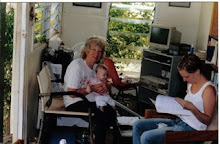18th January
The floods didn’t deter the Fire Brigade’s training session on the weekend. A motivated group of members spent Saturday working to improve skills on handling their new equipment. Nice to see non-members showing some interest too.
A group of motor cyclists made an emergency stop, for repairs to a bike, at the Hotel and enjoyed themselves so much that they stayed the night . They plan to bring a larger group next trip. It is always great when people appreciate the services and hospitality offered, isn’t it?
The weather has been perfect for catching up with a bit of reading and, as usual the library had plenty of new reading in stock. I don’t know if you have noticed the new vocabulary which is filtering into the new novels? The following article will explain how this is happening. It is really interesting to go back to a book published even twenty years ago and see how the language has changed. You will note the same changes in television shows of the same era.
“App” voted 2010 word of the year by the American Dialect Society (UPDATED)
WYNDHAM GRAND HOTEL, PITTSBURGH—JAN. 7—In its 21st annual words of the year vote, the American Dialect Society voted “app” (noun, an abbreviated form of application, a software program for a computer or phone operating system) as the word of the year for 2010. (Read the entire press release.) UPDATE: Photos from the event.)Presiding at the Jan. 7 voting session were ADS Executive Secretary Allan Metcalf of MacMurray College, and Ben Zimmer, chair of the New Words Committee of the American Dialect Society and executive producer of VisualThesaurus.com. Zimmer is also the “On Language” columnist for the New York Times Magazine.“App has been around for ages, but with millions of dollars of marketing muscle behind the slogan ‘There’s an app for that,’ plus the arrival of ‘app stores’ for a wide spectrum of operating systems for phones and computers, app really exploded in the last 12 months,” Zimmer said. “One of the most convincing arguments from the voting floor was from a woman who said that even her grandmother had heard of it.”Word of the Year is interpreted in its broader sense as “vocabulary item”—not just words but phrases. The words or phrases do not have to be brand-new, but they have to be newly prominent or notable in the past year, in the manner of Time magazine’s Person of the Year. The vote is the longest-running such vote anywhere, the only one not tied to commercial interests, and the word-of-the-year event up to which all others lead. It is fully informed by the members’ expertise in the study of words, but it is far from a solemn occasion. Members in the 121-year-old organization include linguists, lexicographers, etymologists, grammarians, historians, researchers, writers, authors, editors, professors, university students, and independent scholars. In conducting the vote, they act in fun and do not pretend to be officially inducting words into the English language. Instead they are highlighting that language change is normal, ongoing, and entertaining.
English—or should I say Amlish—is truly a dynamic language.Till next week, be safe..
Monday, January 31, 2011
Subscribe to:
Post Comments (Atom)

No comments:
Post a Comment